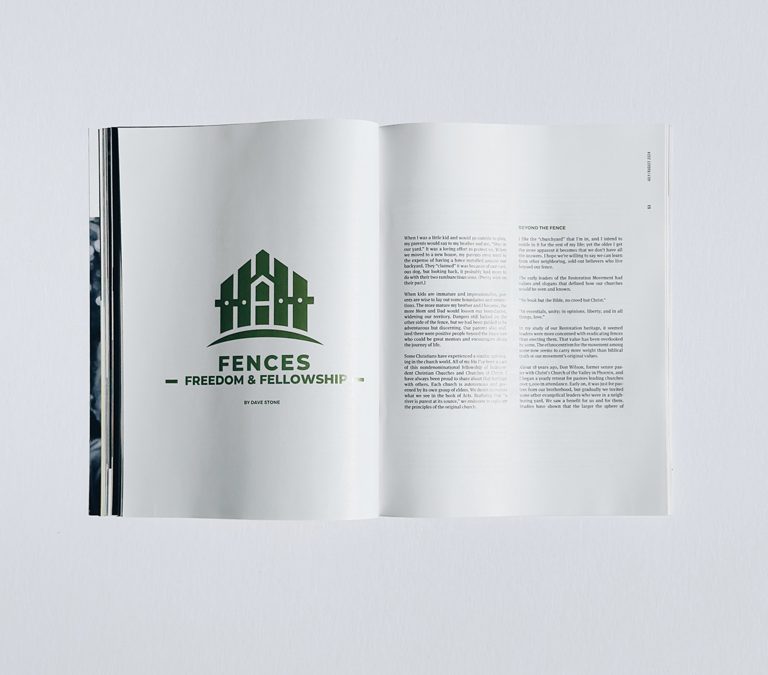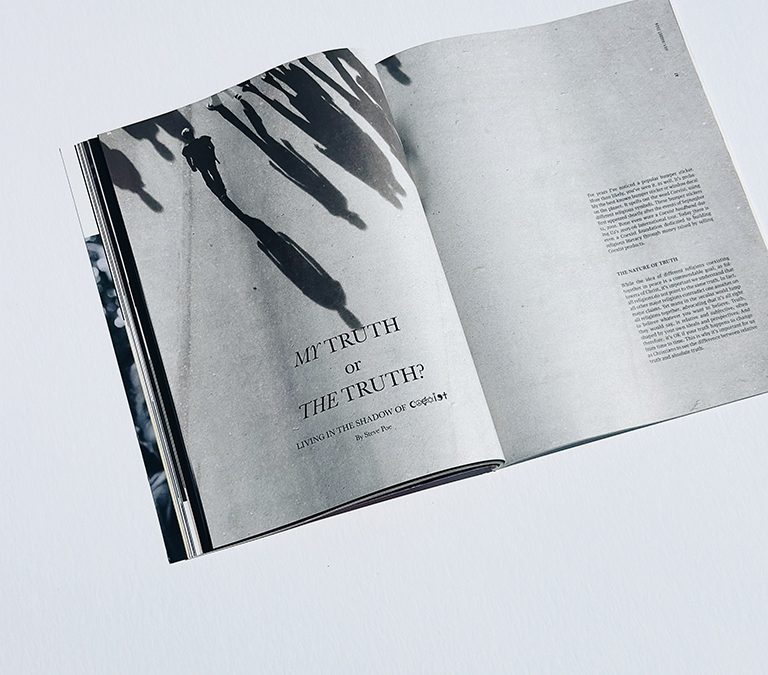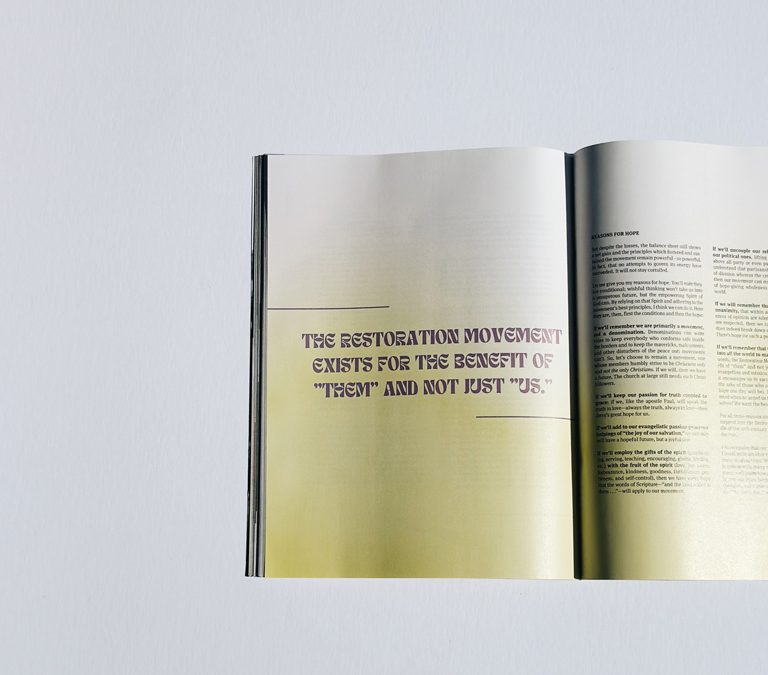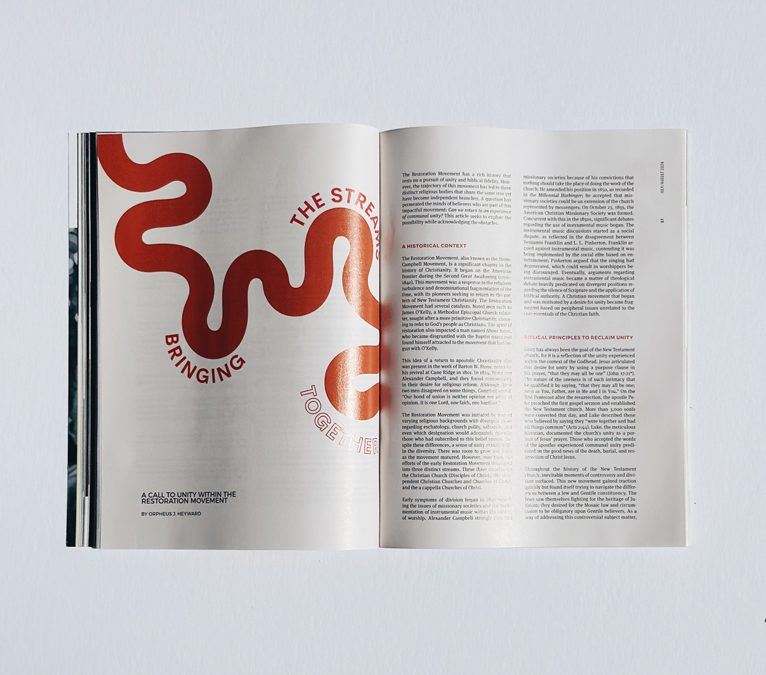By Kelly Carr
Grocery shopping can be a tedious task rather than a joyous undertaking—but stepping through this market’s doors in Parker, Colorado, you are immediately welcomed with encouraging smiles. A personal shopping assistant steps forward to guide you among the shelves packed to the ceiling with delicious options. Turning the corner, the refrigerated section has dairy, eggs, and every cut of meat you could want. The most colorful moment comes when you reach the back aisle—there before you lies a rainbow of beautiful, mouth-watering produce.
It sounds like a typical visit to Whole Foods or a local farmer’s market—a place filled with items you may typically take for granted. But, instead, you are standing in a food pantry.
SECOR was created to offer assistance to those in need with dignity and hope.
Restoring Hope and Faith
“Everything we do is about restoring hope and faith because people have lost a lot of that in themselves and in life in general,” said Mike Dworak, development director at SECOR.
SECOR (Southeast Community Outreach) is a Parker-based ministry founded by members of nearby Southeast Christian Church. While the church remains a supporting partner, SECOR has been a 501(c)3 nonprofit since 2006. SECOR’s leadership and a market, plus Southeast staff members and The Solomon Foundation all share a building, but SECOR will soon move their warehouse and market into a separate building on the same property.
The organization assists the underserved in their community with the goal of lifting people up so that they can “discover their God-given purpose to make a contribution to this world.” SECOR team members passionately describe the growth of this outreach and the concerted efforts of so many volunteers who make things run smoothly. Great attention to detail went into designing a safe space for neighbors in need and nurturing an ongoing relationship with clients so that they are seen, heard, and valued.
This description may sound similar to other nonprofits and ministries, but SECOR’s biggest difference is its setting. Their headquarters is surrounded by subdivisions, cul-de-sacs, retail developments, and restaurants in the suburbs of Denver—they sit in the heart of the fourth-most-affluent county in America.
Poverty is growing here?
Hidden but Real
“The vast need drew me here,” Dworak said. “It’s very hidden, but it’s very real.”
The fastest-growing segment of poverty in America is now suburban. For the last several years, suburban areas have outpaced urban areas in the number of residents struggling to make ends meet, according to the Brookings Institution.
Families have lived out the American dream, settling among good school systems, surrounded by affluent neighbors and plenty of amenities. Yet what happens when tragedy strikes? A lost job. A cancer diagnosis. A broken marriage. Emotional health is not the only thing wrecked—it can also send finances spiraling.
When 60 to 70 percent of a family’s income is spent on housing, as it is in Douglas County, Colorado, it takes only one major incident to turn life upside down. The people who might be affected have worked hard their whole lives, so it feels shameful to ask for help. In the suburbs, assistance programs and even bus service can be hard to come by. People feel trapped.
Enter SECOR. They currently serve 1,500 families a month in three counties (42 zip codes). Yet this is only a small fraction of the 49,000 families who live below poverty level in this region.
Beyond their three free market locations, SECOR offers a range of services to meet the needs of those in poverty:
- They run a backpack program providing weekend food for children and their families.
- They work with professionals to host free dental and medical clinics.
- They partner to find affordable and transitional housing for their clients.
- They work one-on-one with each family to connect them with pro bono legal help and counseling services.
SECOR is developing a fourth free market because they have discovered another nearby community has need—200 people are already on the waiting list, and the market hasn’t even opened yet.
Their model is to go closer to the needs to have a greater impact. And SECOR’s newest initiative seeks to get closer and overcome their neighbors’ transportation issues through a Mobile Free Food Market. Sponsored by Christian Brothers Automotive, now the same vast choices of healthy food in SECOR’s brick-and-mortar markets can be driven right into areas of high need. SECOR sets up, and people can sign in to shop for a ton of food. This will double SECOR’s current impact.
How Did I Get Here?
But SECOR is not about services; their ministry is about intentionally building God-honoring relationships and making people feel comfortable enough to get the help they need.
“When people come in, they don’t need any more obstacles,” Dworak noted. “Coming through the front door is the biggest obstacle for them. Asking for help is not easy to do.”
Dworak doesn’t say this flippantly. He knows the courage it takes—because just a few years ago, he was the one asking for help.
Several years ago Dworak lost his job with a parachurch ministry in Colorado Springs. He was devastated.
“I remember I thought, I’m done,” he recalled. “I was full of shame. What’s wrong with me? I’m too old. You go through the depression, the mind-set that this is over.”
Dworak ended up asking for help and also got Medicaid and food stamps. He remembers a low point when he sat in a room and asked himself, How did I get here?
Thankfully that wasn’t the end of his story. As you might imagine, the experience gave Dworak a new perspective and passion for the work he is now doing at SECOR.
“The people who walk in the door, they’re no different than us,” he said. “Anytime we think we’re above it, in a blink of an eye, we’re there. I don’t know why I’m working right now and they aren’t. But I get it. I know what it feels like. When folks come in, I tell them all the time, ‘I’m glad you’re here. You’re the heroes. You had to walk through that front door, and that ain’t easy.’”
In the communities that SECOR serves, people with PhDs come in, people who formerly made six-figure incomes, yet they are now in a situation similar to people shown in the news around the globe—a state of brokenness.
“God made order and structure and beauty. All of that came apart in Genesis 3,” Dworak said. “We get to try to turn back what’s become ugly from the fall and restore the initial plan of God.”
The Model Is Working
Watching God move and change lives galvanizes the SECOR team to keep finding new ways to help.
April, who is in her mid-40s, is one example of a changed life. April has a PhD in counseling but lost her job and couldn’t find a new one. Not long after, she was diagnosed with breast cancer. She had to go through chemotherapy, yet she and her husband and their two teenage kids had no medical insurance. Her husband worked, and though he didn’t make enough to fully cover all their bills, he made too much to qualify for government assistance. The family found support through SECOR.
Later, SECOR workers noticed April hadn’t come by for a while, so they called to check in. It had been a year since her cancer diagnosis. April told them she had completed chemo, was cancer-free, had gotten a counseling job again, and her family is doing great. They no longer need SECOR’s support. Later that month she stopped in and donated a small amount as a thank-you to the ministry that helped them through that tough time.
“It’s not a lot, but I want to give something,” April said.
Another testimonial came when Dworak was out to eat with a SECOR donor. Throughout the meal the server kept looking at Dworak as if she knew him.
“You look familiar. How do I know you?” she asked. Finally it clicked. “I go to SECOR!” she exclaimed. “That’s where I know you.”
The woman, who is in her mid-30s, briefly shared her story: She is a single mom who works one full-time job and one part-time job, but she can’t make ends meet.
“If it wasn’t for you guys, we wouldn’t make it,” she confessed.
SECOR team members hear many similar stories.
“They’re not sitting around becoming dependent on us,” Dworak said about their clients. “They’re working toward independence, sustainability. That’s our model. So we see those stories and know it’s working.”
One Neighbor at a Time
The SECOR team gets to see God bringing hope to their community and the people who silently struggle there. Perhaps there is a similar silent need near you. Dworak offers this encouragement:
“Take a look at the need in your area, and do what you can do. Don’t get overwhelmed, but look at who you are—what are your gifts? What is God’s still, small voice telling you and leading you to do?”
As SECOR strives to combat the growing issue of suburban poverty, they know they can’t possibly help every person—they simply follow Christ’s calling and offer love to one neighbor at a time.
“At the end of the day, there’s always going to be far more need than people to meet that need because we live in a broken world,” Dworak said. “It’s never going to be fixed, but our call is, ‘Your kingdom come, your will be done, on earth as it is in heaven.’ It’s a restoration of the kingdom of God here on earth.”
Kelly Carr, former editor of The Lookout, enjoys sharing and shaping people’s stories as a writing and editing consultant in Cincinnati, Ohio (EditorOfLife.com).





0 Comments